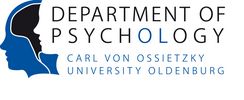Contact
Head
Secretary
Postal address
Maps and directions
Micha Burkhardt
Research Interests
- Network neuroscience & graph theory in individual differences research
- Dynamic functional brain networks
- Robust statistical analysis of fMRI data and multiverse analysis
- Open-source software, open and reproducible science
Academic positions
Since November 2023 | PhD Candidate PMuS Lab (supervised by Prof. Dr. Andrea Hildebrandt and Dr. Carsten Gießing) |
|
|
02/2020 – 03/2023 |
|
Education
10/2020 – 10/2023 | Sensors and Cognitive Psychology (M.Sc.), Chemnitz University of Technology. Thesis: Predicting Behaviour from Dynamic Functional Brain Networks – An Evaluation through Multiverse Analysis. |
10/2015 – 12/2019 |
|
09/2017 – 02/2018 |
|
Publications
Burkhardt, M., Bergelt, J., Gönner, L., Dinkelbach, H.Ü., Beuth, F., Schwarz, A., Bicanski, A., Burgess, N., Hamker, F. H. (2023). A Large-scale Neurocomputational Model of Spatial Cognition Integrating Memory with Vision. Neural Networks, 167, 473-488. doi.org/10.1016/j.neunet.2023.08.034
Burkhardt, M., Thiel, C. M., & Gießing, C. (2022). Robust Correlation for Link Definition in Resting-State fMRI Brain Networks Can Reduce Motion-Related Artifacts. Brain connectivity, 12(1), 18-25. doi.org/10.1089/brain.2020.1005

